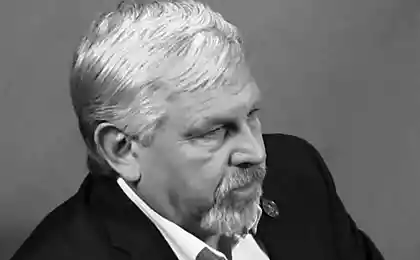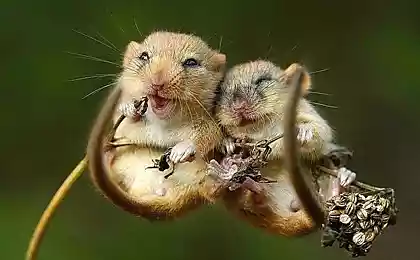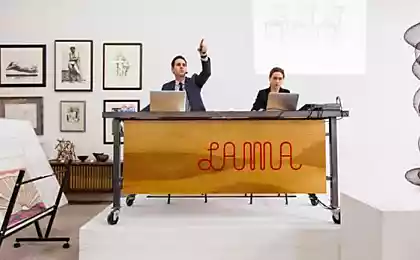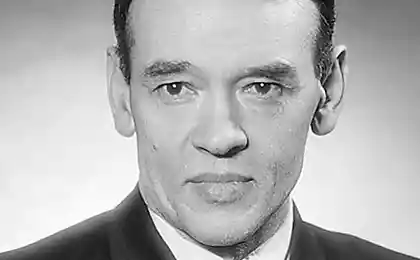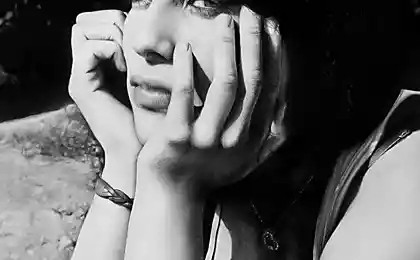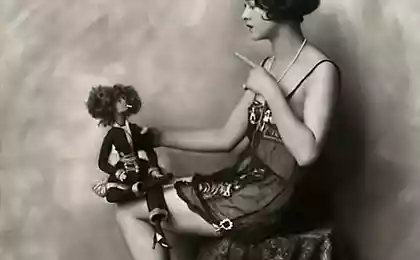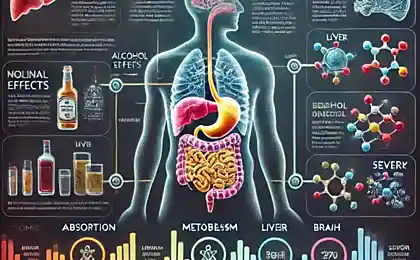339
Alcohol and drugs as a form of protest
A person likes to change consciousness, color reality or even leave it in a semi-imagined world from which you can never return. It's easier to live in a twisted mind. Intoxication dulls feelings and thoughts, releasing instincts. That is why in a strong intoxication, a person, as a rule, becomes not very pleasant to others. There is a certain category of people who are contraindicated to drink at all, they become not just inadequate, but dangerous to themselves and others. The infliction of serious bodily harm and stabbing often accompany the drinking of alcoholic beverages. As for hard drugs, the situation is even more deplorable and often irreparable.
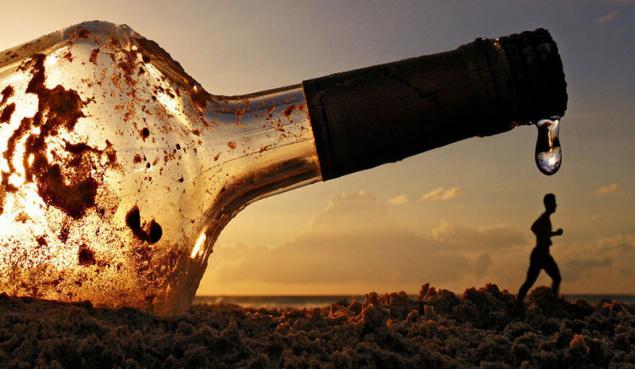
For all the obvious disadvantages and dangers of drinking alcohol, human culture cannot do without it. In some civilizations, the use of alcoholic beverages is a tradition dating back to ancient times. It is not only in Russia that people drink a lot, as some might think. For example, people in the United States, Great Britain, France, Ireland, Scotland and other countries love to drink. Of course, the traditions of use are different, but in fact, all the same. In connection with religious beliefs, residents of Muslim countries do not drink; in general, the East, unlike the West, does not have a great love for alcohol.
Edgar Allan Poe once said, “Alcohol is an anesthesia that allows you to undergo an operation called life.”
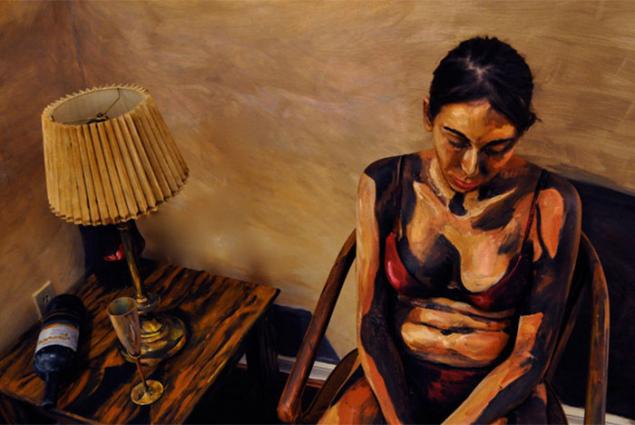
It is no secret that women drink less than men. First, women are physically weaker. Secondly, women produce fewer enzymes that break down alcohol, so intoxication occurs faster. Thirdly, and this is the most important thing, women live more by feelings, as a result of which their intoxication differs in the strength of the effect on the psyche. Women have a greater dependence on emotions, and when intoxicated, their emotional subordination becomes hypertrophied, self-control and adequate perception of the situation are lost, which, by the way, are successfully used by men for whom a heavily drunk woman becomes easy sexual prey. Female alcoholism develops rapidly and is practically not curable.
Fyodor Dostoevsky: “Wine scotine and brutalizes a person, hardens him and distracts him from bright thoughts, dulls him.”
Obviously, everything needs a measure. Drinking alcohol is certainly harmful to health, just as it harms, for example, living in a polluted metropolis, or smoking tobacco, or eating with chemical additives, or stress, or unloved work. Everything ultimately kills us, no matter how difficult it is to recognize and accept.
It makes no sense to consider the most severe forms of alcohol or drug addiction, clinical cases when a person changes beyond recognition, degrades and ceases to be himself. In these cases, qualified medical care is required, which does not always work.
Sergey Dovlatov: I read so much about the dangers of alcohol! I decided to stop reading forever.
So what gives us intoxication and dope as such? And why do creative people so often resort to doping? The answer is obvious: intoxication, distorting consciousness, opens the world from unusual sides. At least it seems so, and that’s enough.
It is easier for the drunk mind to perceive the surrounding reality, which often does not correspond to our ideas about it. In the process of intoxication, the cognitive dissonance of reality and desire is eliminated. Problems are not solved, they simply cease to be too noticeable, a person switches, gets distracted, relaxes, enjoys, and stabbing and cutting reality is left out of his perception. It's addictive. Thus, the most amazing current of subjective idealism, solipsism, finds its true embodiment.
Reality exists regardless of our perceptions of it. Returning from the “pliable” world of warped consciousness is becoming increasingly difficult. Man is curious and weak. So he sits on a needle, glass or smoke. The best way to avoid this is not to try.
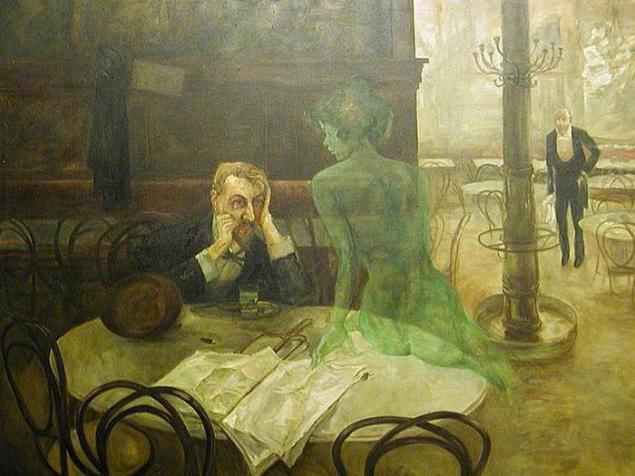
Artists in the broad sense of the word always try to expand the boundaries of the usual reality, to see the hidden facets of existence. In fact, seeing familiar things from non-standard angles and reveals the true art.
Jim Morrison: I drink to write poetry.
Creative people are tight within the ordinary framework, they want exacerbation, an explosion of emotions. Writers, poets, artists, musicians, actors are looking for inspiration in everything, so they often go into all seriousness. We can safely say that without alcohol and drugs, there would not be a whole galaxy of famous artists who changed the world with their work. At the same time, we can say that many truly gifted people were killed by alcohol and drugs. This is a paradox.
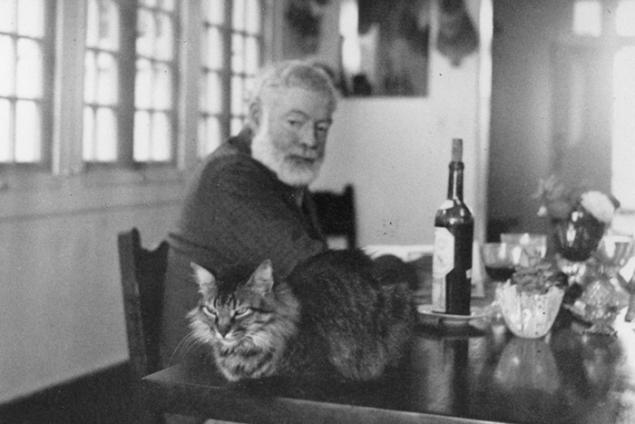
Vincent Van Gogh, Henri Toulouse-Lautrec, Andre Breton, Charles Baudelaire, Paul Verlaine, Arthur Rimbaud, Edgar Allan Poe, William Faulkner, Scott Fitzgerald, Jack London, Friedrich Nietzsche, Sigmund Freud, Oscar Wilde, Alexander Dumas, Honore de Balzac, Erich Maria Remarque, Ernest Hemingway, Charles Bukowski, Henry Miller, Jack Kerouac, Marilyn Monroe, Mikhail Bulgakov, Sergei Yesenin, Vladimir Mayakovsky, alcohol, Sergey Devsky, the arts, Emery, Jameston, Jimbissley Moroby, Jimijsley, or other famous people in the arts, Jimbisley, Jimbisssley, Jimijsley, Jimijnevsky, Jimijnevsky, Jimijnevsky Talking about the weaknesses of living famous people is unethical. In one way or another, the theme of alcohol and drugs is the leitmotif of many modern works.
Charles Bukowski once said, “When you’re drunk, the world is still out there, but at least it doesn’t hold you by the throat.”
For some, alcohol or drugs are a source of inspiration, a way of life. As a rule, this method makes life too short. It's a choice. Alcohol or drugs will never make a person an artist. To create something truly worthwhile requires work and talent. All of the above are artists first.
Ernest Hemingway: “Write drunk, edit sober.”
Speaking of changing consciousness, it is impossible to ignore marijuana (cannabis, ganja, hashish, anasha; rasta). "Hemp." Anything about the harm or benefits of marijuana is controversial. According to the official opinion of some scientists, the use of marijuana (cannabis) is less harmful to health than alcohol or tobacco smoking. There is no evidence of physical dependence. Cannabis use (including medical use) is legal in some countries and states.
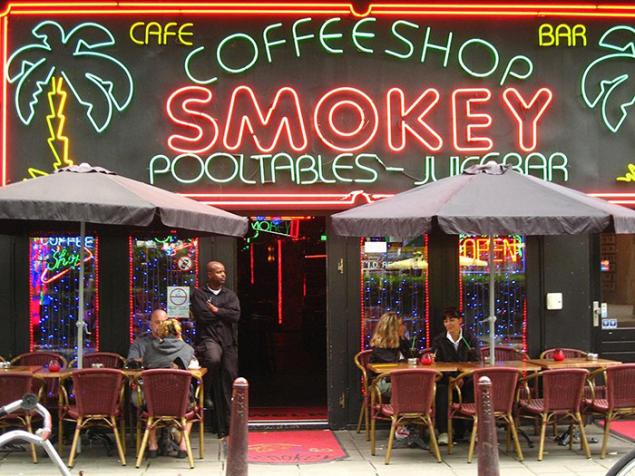
Victor Pelevin: “Drugs in general are able to solve only those problems that they create themselves beforehand.”
According to most researchers, the main danger of cannabis is that its use contributes to the transition to harder drugs. In Russia, marijuana is officially prohibited by law, as is the carrying of firearms. Given the inherent Russian mentality of ignorance of the measure, the resolution of both can lead to a large-scale catastrophe, especially if you add a love of alcohol. It is not hard to imagine what will happen on the streets of the country after such permits.
Despite the official ban, smoking marijuana is quite common. There is little that can be done about this, because the use of cannabis derivatives in world culture goes back hundreds of years. Unlike alcohol, which mostly dulls feelings and thoughts, marijuana sharpens them. The famous French poet Charles Baudelaire in his Poem of hashish describes the sensation of smoking:
The colors will acquire extraordinary brightness and rush into your brain with victorious power. Dull, mediocre or even bad painting of plafonds will be clothed with life festiveness: the roughest wallpaper covering the walls of some inns turn into magnificent dioramas.
Life "high" seems more interesting, fun and easier. But a person who exists in endless courage eventually burns in it. The price for the high is overwhelming loneliness and loss of connection with the world. The addict is consumed by chaos and disharmony, because artificial unnatural ways of changing and expanding consciousness are inherently destructive. A unique and unique life becomes an illusion.
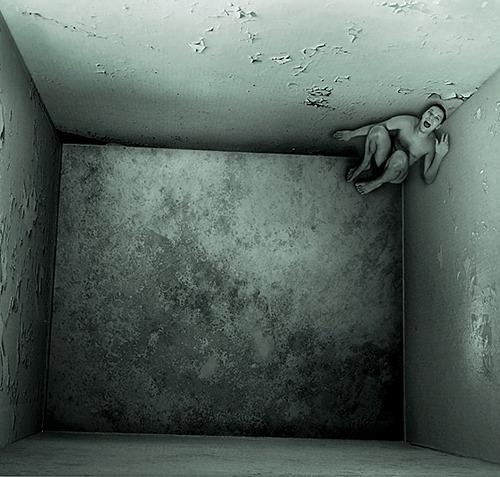
In any intoxication, freedom is felt more clearly: the boundaries of permissibility are expanded, the norms of morality are shifted, everything seems to be subject to man. But when, for the sake of repeating pleasant sensations, a person is ready to step over himself, then freedom turns into fiction, and courage turns into despair. It is impossible to be free in captivity to one’s own desires, just as it is impossible to be brave in fear of remaining alone with the world in a sober mind.
One of the paradoxes of art is that despair itself can create it. Moreover, the best works of art are associated with human tragedy. Happiness is self-sufficient and does not require special embodiments. It was created to enjoy it. Therefore, alcohol abuse or drug use by people of art is quite understandable: they speed up the process. Expanding the limits of perception and other things, one way or another associated with various kinds of abuse, give inspiration and a sense of life, which are necessary for creativity. But the price for art on edge is usually early death. published
Author:Sergei Sadovnichy
P.S. And remember, just by changing your consciousness – together we change the world!
Source: www.cablook.com/mirror/alkogol-narkotiki-kak-forma-protesta-protiv-sebya/

For all the obvious disadvantages and dangers of drinking alcohol, human culture cannot do without it. In some civilizations, the use of alcoholic beverages is a tradition dating back to ancient times. It is not only in Russia that people drink a lot, as some might think. For example, people in the United States, Great Britain, France, Ireland, Scotland and other countries love to drink. Of course, the traditions of use are different, but in fact, all the same. In connection with religious beliefs, residents of Muslim countries do not drink; in general, the East, unlike the West, does not have a great love for alcohol.
Edgar Allan Poe once said, “Alcohol is an anesthesia that allows you to undergo an operation called life.”

It is no secret that women drink less than men. First, women are physically weaker. Secondly, women produce fewer enzymes that break down alcohol, so intoxication occurs faster. Thirdly, and this is the most important thing, women live more by feelings, as a result of which their intoxication differs in the strength of the effect on the psyche. Women have a greater dependence on emotions, and when intoxicated, their emotional subordination becomes hypertrophied, self-control and adequate perception of the situation are lost, which, by the way, are successfully used by men for whom a heavily drunk woman becomes easy sexual prey. Female alcoholism develops rapidly and is practically not curable.
Fyodor Dostoevsky: “Wine scotine and brutalizes a person, hardens him and distracts him from bright thoughts, dulls him.”
Obviously, everything needs a measure. Drinking alcohol is certainly harmful to health, just as it harms, for example, living in a polluted metropolis, or smoking tobacco, or eating with chemical additives, or stress, or unloved work. Everything ultimately kills us, no matter how difficult it is to recognize and accept.
It makes no sense to consider the most severe forms of alcohol or drug addiction, clinical cases when a person changes beyond recognition, degrades and ceases to be himself. In these cases, qualified medical care is required, which does not always work.
Sergey Dovlatov: I read so much about the dangers of alcohol! I decided to stop reading forever.
So what gives us intoxication and dope as such? And why do creative people so often resort to doping? The answer is obvious: intoxication, distorting consciousness, opens the world from unusual sides. At least it seems so, and that’s enough.
It is easier for the drunk mind to perceive the surrounding reality, which often does not correspond to our ideas about it. In the process of intoxication, the cognitive dissonance of reality and desire is eliminated. Problems are not solved, they simply cease to be too noticeable, a person switches, gets distracted, relaxes, enjoys, and stabbing and cutting reality is left out of his perception. It's addictive. Thus, the most amazing current of subjective idealism, solipsism, finds its true embodiment.
Reality exists regardless of our perceptions of it. Returning from the “pliable” world of warped consciousness is becoming increasingly difficult. Man is curious and weak. So he sits on a needle, glass or smoke. The best way to avoid this is not to try.

Artists in the broad sense of the word always try to expand the boundaries of the usual reality, to see the hidden facets of existence. In fact, seeing familiar things from non-standard angles and reveals the true art.
Jim Morrison: I drink to write poetry.
Creative people are tight within the ordinary framework, they want exacerbation, an explosion of emotions. Writers, poets, artists, musicians, actors are looking for inspiration in everything, so they often go into all seriousness. We can safely say that without alcohol and drugs, there would not be a whole galaxy of famous artists who changed the world with their work. At the same time, we can say that many truly gifted people were killed by alcohol and drugs. This is a paradox.

Vincent Van Gogh, Henri Toulouse-Lautrec, Andre Breton, Charles Baudelaire, Paul Verlaine, Arthur Rimbaud, Edgar Allan Poe, William Faulkner, Scott Fitzgerald, Jack London, Friedrich Nietzsche, Sigmund Freud, Oscar Wilde, Alexander Dumas, Honore de Balzac, Erich Maria Remarque, Ernest Hemingway, Charles Bukowski, Henry Miller, Jack Kerouac, Marilyn Monroe, Mikhail Bulgakov, Sergei Yesenin, Vladimir Mayakovsky, alcohol, Sergey Devsky, the arts, Emery, Jameston, Jimbissley Moroby, Jimijsley, or other famous people in the arts, Jimbisley, Jimbisssley, Jimijsley, Jimijnevsky, Jimijnevsky, Jimijnevsky Talking about the weaknesses of living famous people is unethical. In one way or another, the theme of alcohol and drugs is the leitmotif of many modern works.
Charles Bukowski once said, “When you’re drunk, the world is still out there, but at least it doesn’t hold you by the throat.”
For some, alcohol or drugs are a source of inspiration, a way of life. As a rule, this method makes life too short. It's a choice. Alcohol or drugs will never make a person an artist. To create something truly worthwhile requires work and talent. All of the above are artists first.
Ernest Hemingway: “Write drunk, edit sober.”
Speaking of changing consciousness, it is impossible to ignore marijuana (cannabis, ganja, hashish, anasha; rasta). "Hemp." Anything about the harm or benefits of marijuana is controversial. According to the official opinion of some scientists, the use of marijuana (cannabis) is less harmful to health than alcohol or tobacco smoking. There is no evidence of physical dependence. Cannabis use (including medical use) is legal in some countries and states.

Victor Pelevin: “Drugs in general are able to solve only those problems that they create themselves beforehand.”
According to most researchers, the main danger of cannabis is that its use contributes to the transition to harder drugs. In Russia, marijuana is officially prohibited by law, as is the carrying of firearms. Given the inherent Russian mentality of ignorance of the measure, the resolution of both can lead to a large-scale catastrophe, especially if you add a love of alcohol. It is not hard to imagine what will happen on the streets of the country after such permits.
Despite the official ban, smoking marijuana is quite common. There is little that can be done about this, because the use of cannabis derivatives in world culture goes back hundreds of years. Unlike alcohol, which mostly dulls feelings and thoughts, marijuana sharpens them. The famous French poet Charles Baudelaire in his Poem of hashish describes the sensation of smoking:
The colors will acquire extraordinary brightness and rush into your brain with victorious power. Dull, mediocre or even bad painting of plafonds will be clothed with life festiveness: the roughest wallpaper covering the walls of some inns turn into magnificent dioramas.
Life "high" seems more interesting, fun and easier. But a person who exists in endless courage eventually burns in it. The price for the high is overwhelming loneliness and loss of connection with the world. The addict is consumed by chaos and disharmony, because artificial unnatural ways of changing and expanding consciousness are inherently destructive. A unique and unique life becomes an illusion.

In any intoxication, freedom is felt more clearly: the boundaries of permissibility are expanded, the norms of morality are shifted, everything seems to be subject to man. But when, for the sake of repeating pleasant sensations, a person is ready to step over himself, then freedom turns into fiction, and courage turns into despair. It is impossible to be free in captivity to one’s own desires, just as it is impossible to be brave in fear of remaining alone with the world in a sober mind.
One of the paradoxes of art is that despair itself can create it. Moreover, the best works of art are associated with human tragedy. Happiness is self-sufficient and does not require special embodiments. It was created to enjoy it. Therefore, alcohol abuse or drug use by people of art is quite understandable: they speed up the process. Expanding the limits of perception and other things, one way or another associated with various kinds of abuse, give inspiration and a sense of life, which are necessary for creativity. But the price for art on edge is usually early death. published
Author:Sergei Sadovnichy
P.S. And remember, just by changing your consciousness – together we change the world!
Source: www.cablook.com/mirror/alkogol-narkotiki-kak-forma-protesta-protiv-sebya/





